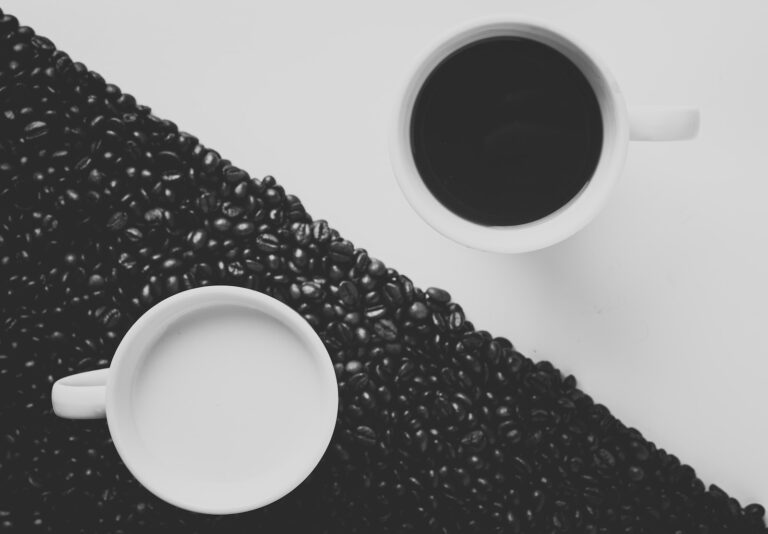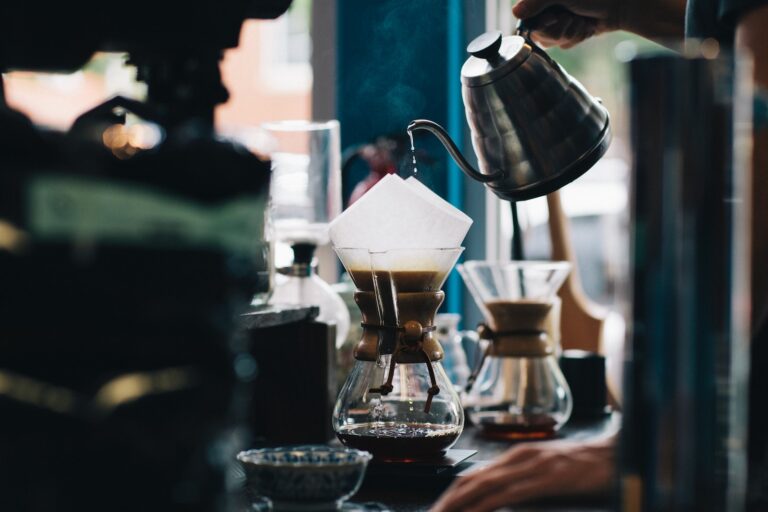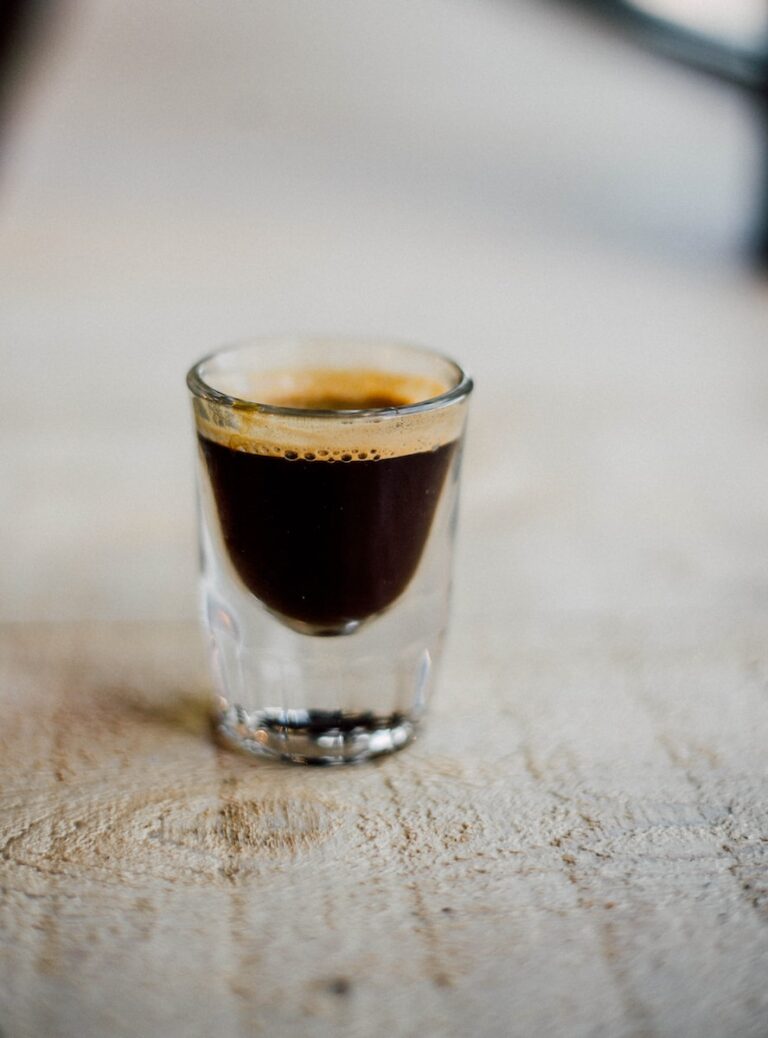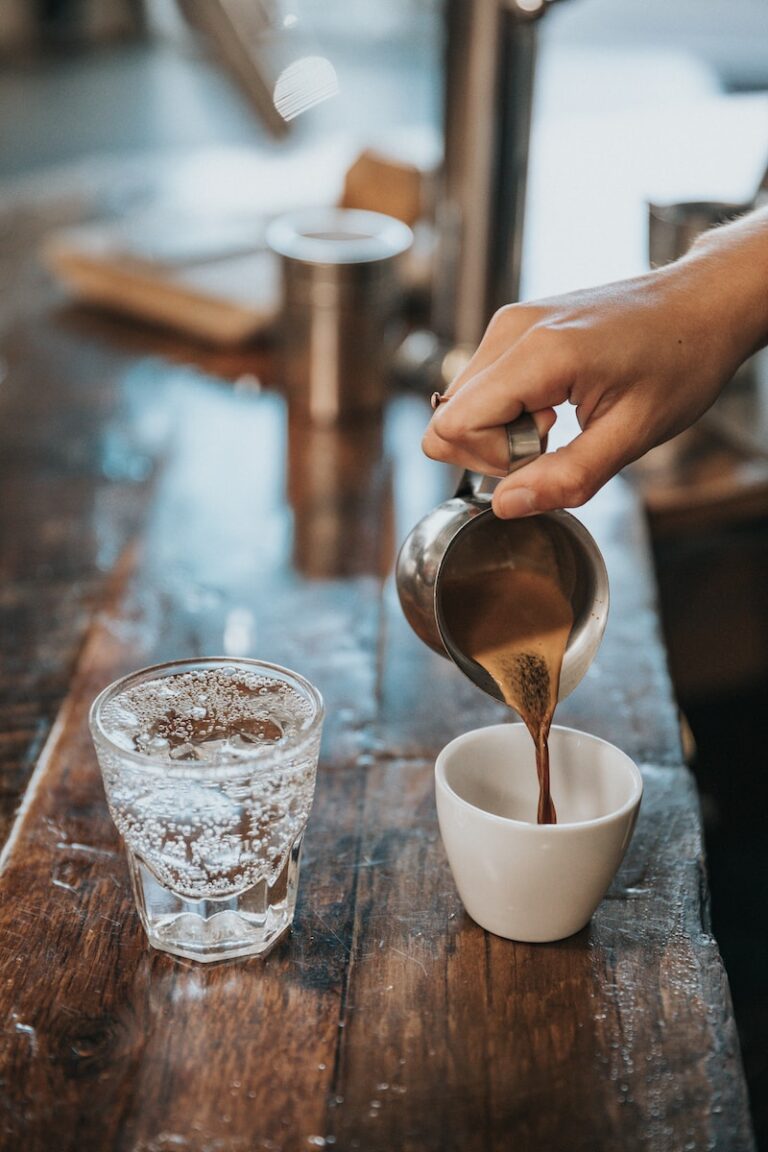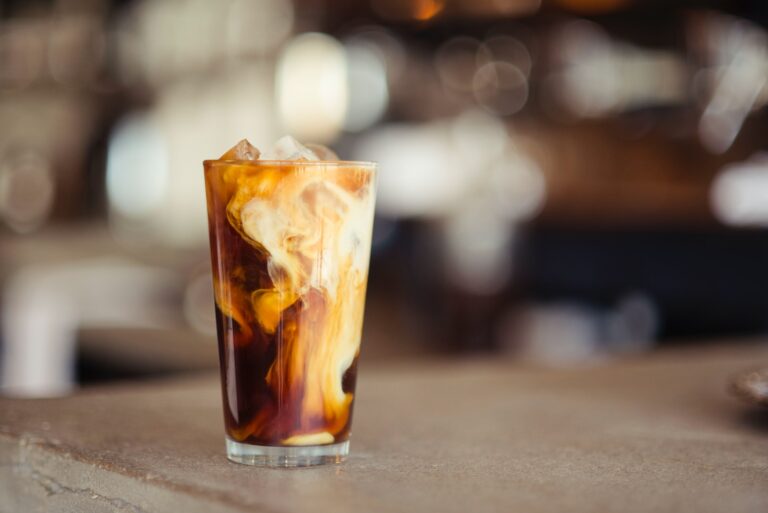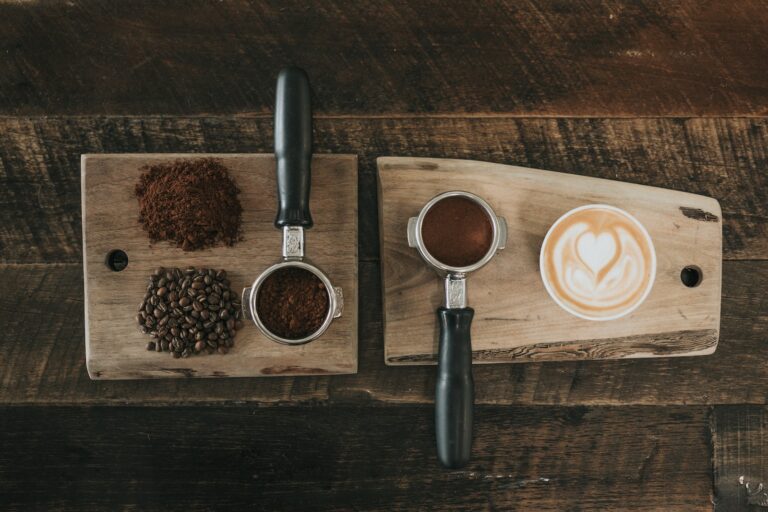Are you a coffee enthusiast eager to unravel the secrets behind your favorite aromatic beverage? Or perhaps a newbie looking to understand why this elixir has become a worldwide sensation? Look no further! In this comprehensive introduction, we will embark on an exhilarating journey into the captivating world of coffee.
From its humble beginnings as a mystical Ethiopian discovery to its ubiquitous presence in countless cultures today, let’s delve deep and uncover what makes this enticing brew so much more than just another caffeinated drink. Get ready to awaken your senses and embrace the delightful complexities that await within every sip… Welcome to the fascinating realm of coffee!
Introduction: Defining coffee and its origins
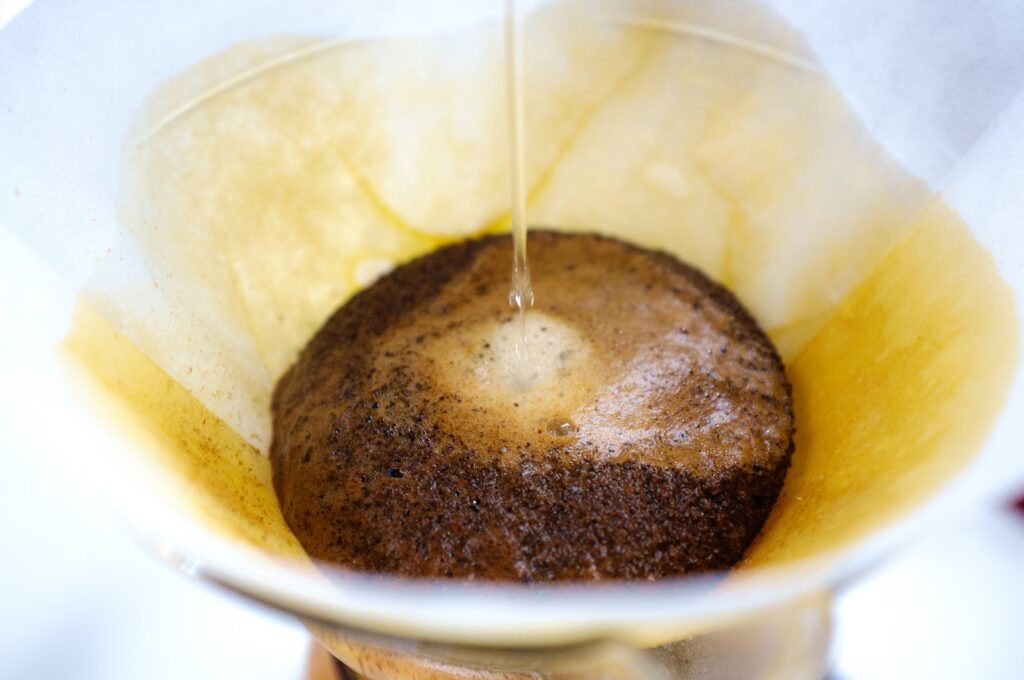
Coffee, for many people around the world, is an essential part of their daily routine. Whether it’s sipping a hot cup in the morning to jump-start your day or enjoying a freshly brewed iced coffee on a sweltering summer afternoon, this beloved beverage has become ingrained in our lives.
But have you ever stopped to think about what exactly makes up this aromatic drink? Where did it come from and how did it become such a popular commodity? In this section of our comprehensive guide on coffee, we will delve into the origins of coffee and how it has evolved over time.
What is Coffee?
Although seemingly simple, defining coffee can be quite complicated. Simply put, coffee is a brewed drink made from roasted coffee beans, typically served hot but also enjoyed cold. It contains caffeine which acts as a stimulant and gives you that much-needed energy boost.
However, there are various types of coffee preparations that can alter its taste and composition. From espresso shots to cappuccinos to drip coffees, each method brings out different flavors and strengths in the bean.
Origins of Coffee
The exact origin of coffee often sparks debate among historians. However, most agree that coffee was first discovered in Ethiopia by a goat herder named Kaldi around 800 AD. Legend has it that Kaldi noticed his goats acting extremely lively after eating red berries from a certain plant. Upon trying these berries himself, he too experienced an energy boost.
The History of Coffee: How it all began
Coffee, the beloved beverage of millions around the world, has a rich and fascinating history that dates back centuries. From its discovery in the ancient highlands of Ethiopia to its current status as one of the most popular drinks in the world, coffee has come a long way. In this section, we will take a deep dive into the history of coffee and trace its journey from humble beginnings to becoming a global sensation.
The story of how coffee was first discovered is steeped in legend and folklore. According to one popular tale, a goat herder named Kaldi noticed that his goats became more energetic and lively after eating berries from a certain type of plant. Curious about this strange phenomenon, Kaldi tried these berries himself, and soon he too experienced a burst of energy. These mysterious berries were later identified as coffee beans.
Although it cannot be verified if this story is entirely accurate, it does align with historical accounts suggesting that coffee originated in Ethiopia sometime between 800-900 AD. The Oromo tribe in Ethiopia is believed to be the first people who actively cultivated and traded coffee beans. They would grind up the beans and mix them with animal fat to create small energy balls that they could consume on their hunting trips.
Health Benefits
Coffee is one of the most widely consumed beverages in the world, and for good reason. Its rich aroma and bold flavor make it a favorite morning pick-me-up or anytime indulgence. But aside from its delicious taste, coffee also has numerous health benefits and potential risks that are worth exploring.
1] Boosted Energy Levels: One of the most well-known benefits of coffee is its ability to increase energy levels. This is due to its high caffeine content, which stimulates the central nervous system and helps improve alertness, memory, and overall brain function.
2] Improved Physical Performance: Caffeine can also have a positive effect on physical performance. Studies have shown that consuming coffee before a workout can help increase endurance, strength, and speed by stimulating the body’s adrenaline production.
3] Rich in Antioxidants: Coffee contains powerful antioxidants like polyphenols and hydrocinnamic acids that can help fight against free radicals in the body. These antioxidants help protect cells from damage and reduce the risk of chronic diseases such as heart disease, cancer, and Alzheimer’s.
4] Lower Risk of Type 2 Diabetes: Research suggests that regular coffee consumption may lower the risk of developing type 2 diabetes. This is because caffeine helps regulate blood sugar levels and improve insulin sensitivity.
Common Myths About Coffee Debunked
Coffee is one of the most consumed beverages in the world, with millions of people indulging in its rich and flavorful taste every day. However, despite being a staple drink for many, there are still some common myths surrounding coffee that often lead to confusion among consumers. In this section, we will debunk these myths and provide you with accurate information about your favorite cup of joe.
Myth #1: Coffee can dehydrate you
Many people believe that coffee is a diuretic and can cause dehydration. This belief stems from the fact that caffeine is a natural stimulant which increases urine output. However, research has shown that the amount of fluid lost through urine after consuming coffee is minimal compared to the amount you take in while drinking it. Therefore, coffee does not cause dehydration and can be included as part of your daily fluid intake.
Myth #2: Dark roast coffee has more caffeine than light roast
Contrary to popular belief, the roasting process does not affect the caffeine content in coffee beans significantly. While dark roast beans may appear stronger and bolder in flavor due to longer roasting times, they do not contain higher levels of caffeine than light roast beans. The type and origin of the bean play a more significant role in determining caffeine levels.
Myth #3: Drinking coffee regularly can cause heart disease
There have been concerns about whether regular consumption of coffee could increase the risk of developing heart disease due to its stimulating effect on blood pressure. However, numerous studies have shown that moderate coffee consumption (3-5 cups per day) does not pose any significant risk to heart health. In fact, some studies have shown that coffee may even reduce the risk of developing heart disease.
Myth #4: You should drink coffee to sober up
While many people believe that drinking coffee can help them sober up after a night of drinking, this is not true. The caffeine in coffee may make you feel more alert and awake, but it does not change your blood alcohol content or speed up the process of breaking down alcohol in your body. Only time can sober you up after drinking.
Myth #5: Coffee stunts your growth
This myth likely originated from parents discouraging their children from drinking coffee to keep them from staying up late at night. However, there is no evidence to suggest that coffee consumption has any impact on height or growth in adolescents.
Myth #6: Decaf means no caffeine
Although decaffeinated coffee does contain significantly less caffeine than regular coffee, it still contains small amounts of caffeine. The caffeine content in decaf coffee can range anywhere from 2-15 mg per 8 oz cup, compared to 95 mg in regular brewed coffee.
Tips for Making the Perfect Cup of Coffee at Home
Brewing a perfect cup of coffee at home can seem like an art form, but with the right tools and techniques, anyone can become an expert barista in their own kitchen.
Here are some tips to help you make the perfect cup of coffee at home.
1] Start with Freshly Roasted Beans: The key to a great cup of coffee is using freshly roasted beans. Coffee beans start to lose their flavor and aroma shortly after being roasted, so it’s best to buy them as fresh as possible. Look for local roasters or specialty shops that roast their beans on-site for the freshest options.
2] Grind Your Own Beans: To truly achieve the perfect cup, grinding your own beans instead of buying pre-ground coffee is essential. Grinding just before brewing ensures maximum freshness and allows you to adjust the grind size according to your preferred brewing method.
3] Invest in Quality Equipment: While it may be tempting to opt for a cheap coffee maker or instant coffee packets, investing in quality equipment will significantly improve the taste of your homemade brew. Consider purchasing a drip coffee machine or a French press, both of which are relatively affordable and easy to use.
4] Use Filtered Water: The water used for brewing has a significant impact on the taste of your coffee, so avoid using tap water if possible. Filtered water will not only enhance the flavor but also prevent any impurities from affecting your brew.
5] Measure Your Ingredients: Achieving consistency in your cups requires precise measurements . Invest in a coffee scale to ensure you are using the right amount of beans and water for each cup.
6] Experiment with Ratios: The standard ratio for brewing coffee is 2 tablespoons of coffee grounds to every 6 ounces of water. However, don’t be afraid to experiment with different ratios to find your perfect cup.
7] Preheat Your Equipment: Before brewing, make sure to preheat your coffee maker or French press by rinsing it with hot water. This will help keep your coffee at optimal temperature during the brewing process.
8] Don’t Let It Sit: Once your coffee has finished brewing, don’t let it sit in the carafe or French press for too long before serving. This can cause it to become over-extracted and bitter.
9] Add Milk or Creamer Last: If you like to add milk or creamer to your coffee, make sure to do so after the coffee has finished brewing. Adding them while the coffee is still hot can scald them and affect the taste.
10] Clean Your Equipment Regularly: To ensure the best flavor and avoid any leftover residues affecting future cups, make sure to clean your equipment regularly according to manufacturer instructions.
Conclusion: Why coffee is much more than just a drink
Coffee is often considered as a simple beverage, enjoyed for its rich aroma and invigorating taste. However, it would be an understatement to say that coffee is just a drink. In fact, coffee has a significant impact on our daily lives and plays a crucial role in shaping our culture and society. In this concluding section, we will delve into the reasons why coffee is much more than just a drink.


